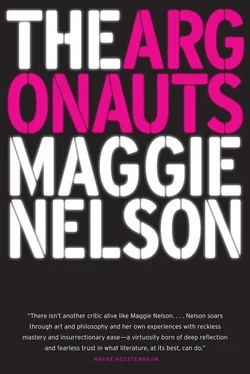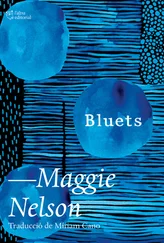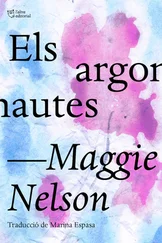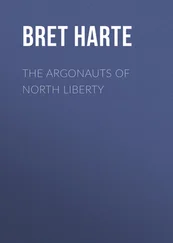My stepson is too old for Fallen Soldier or Bear Family now. As I write, he’s listening to Funky Cold Medina on his iPod — eyes closed, in his gigantic body, lying on the red couch. Nine years old.
There’s something truly strange about living in a historical moment in which the conservative anxiety and despair about queers bringing down civilization and its institutions (marriage, most notably) is met by the anxiety and despair so many queers feel about the failure or incapacity of queerness to bring down civilization and its institutions, and their frustration with the assimilationist, unthinkingly neoliberal bent of the mainstream GLBTQ+ movement, which has spent fine coin begging entrance into two historically repressive structures: marriage and the military. “I’m not the kind of faggot who wants to put a rainbow sticker on a machine gun,” declares poet CAConrad. If there’s one thing homonormativity reveals, it’s the troubling fact that you can be victimized and in no way be radical; it happens very often among homosexuals as with every other oppressed minority .
This is not a devaluation of queerness. It is a reminder: if we want to do more than claw our way into repressive structures, we have our work cut out for us.
At the 2012 Pride intervention in Oakland, some antiassimilationist activists unfurled a banner that read: CAPITALISM IS FUCKING THE QUEER OUT OF US. A distributed pamphlet read:
What is destructive to straight society — we know can never be commodified and purged of rebellion. So we maintain our stance — as fierce fags, queers, dykes and trans girls and bois and gender queers and all the combination and in be tweens and those that negate it all at the same time.
We bid[e] our time, striking here and there and fantasize of a world where all of the exploited of the world can come together and attack. We want to find you, comrade, if this too is what you want.
For the total destruction of Capital,
bad bitches who will fuck your shit up.
I was glad for their intervention: there is some evil shit in this world that needs fucking up, and the time for blithely asserting that sleeping with whomever you want however you want is going to jam its machinery is long past. But I’ve never been able to answer to comrade , nor share in this fantasy of attack. In fact I have come to understand revolutionary language as a sort of fetish — in which case, one response to the above might be, Our diagnosis is similar, but our perversities are not compatible .
Perhaps it’s the word radical that needs rethinking. But what could we angle ourselves toward instead, or in addition? Openness? Is that good enough, strong enough? You’re the only one who knows when you’re using things to protect yourself and keep your ego together and when you’re opening and letting things fall apart, letting the world come as it is — working with it rather than struggling against it. You’re the only one who knows . And the thing is, even you don’t always know.
In October of 2012, when Iggy was about eight months old, I was invited to speak at Biola University, an evangelical Christian school near Los Angeles. Their art department’s annual symposium was to be dedicated to the topic of art and violence. For a few weeks I wrestled with the invitation. It was a short drive away; in one afternoon of work, I could pay for a month of babysitting for Iggy. But then there was the outrageous fact that the college expels students for being gay or engaging in homosexual acts. (As with the U.S. military’s Don’t Ask, Don’t Tell policy, Biola doesn’t get bogged down with the question of whether homosexuality is an identity, a speech act, or a behavior: any which way, you’re out.)
To learn more, I consulted Biola’s doctrinal statement online, and there discovered that Biola actually disallows all sex outside of “biblical marriage,” here defined as “a faithful, heterosexual union between one genetic male and one genetic female.” (I was impressed by the “genetic”—très au courant!) Elsewhere on the web I learned that there is, or was, a student group called the Biola Queer Underground that emerged a few years ago to protest the antigay policies of the college, mainly via the web and anonymous postering campaigns on campus. The group’s name seemed promising, but my excitement dimmed upon reading the FAQ on their web page:
Q: What is The Biola Underground’s stance on homosexuality?
A: Surprisingly, some people have been unclear as to what we think about being both LGBTQ and Christian. To clear up this issue, we are in favor of celebrating homosexual behavior in its proper context: marriage…. We hold to the already stated standards of Biola that premarital sex is sinful and outside of God’s plan for humans and we believe that this standard also applies to homosexuals and other members of the LGBTQ community.
What kind of “queer” is this?
Eve Kosofsky Sedgwick wanted to make way for “queer” to hold all kinds of resistances and fracturings and mismatches that have little or nothing to do with sexual orientation. “Queer is a continuing moment, movement, motive — recurrent, eddying, troublant” she wrote. “Keenly, it is relational, and strange.” She wanted the term to be a perpetual excitement, a kind of placeholder — a nominative, like Argo , willing to designate molten or shifting parts, a means of asserting while also giving the slip. That is what reclaimed terms do — they retain, they insist on retaining, a sense of the fugitive.
At the same time, Sedgwick argued that “given the historical and contemporary force of the prohibitions against every same-sex sexual expression, for anyone to disavow those meanings, or to displace them from the term [ queer ]’s definitional center, would be to dematerialize any possibility of queerness itself.”
In other words, she wanted it both ways. There is much to be learned from wanting something both ways.
Sedgwick once proposed that “what it takes — all it takes — to make the description ‘queer’ a true one is the impulsion to use it in the first person,” and that “anyone’s use of ‘queer’ about themselves means differently from their use of it about someone else.” Annoying as it might be to hear a straight white guy talk about a book of his as queer (do you have to own everything?), in the end, it’s probably all for the better. Sedgwick, who was long married to a man with whom she had, by her own description, mostly postshower, vanilla sex, knew about the possibilities of this first-person use of the term perhaps better than anyone else. She took heat for it, just as she took heat for identifying with gay men (not to mention as a gay man), and for giving lesbians not much more than an occasional nod. Some thought it regressive that a “queen of queer theory” kept men or male sexuality at the center of the action (as in her book Between Men: English Literature and Male Homosocial Desire ), even if for the purpose of feminist critique.
Such were Sedgwick’s identifications and interests; she was nothing if not honest. And in person she exuded a sexuality and charisma that was much more powerful, particular, and compelling than the poles of masculinity and femininity could ever allow — one that had to do with being fat, freckled, prone to blushing, bedecked in textiles, generous, uncannily sweet, almost sadistically intelligent, and, by the time I met her, terminally ill.
The more I thought about Biola’s doctrinal statement, the more I realized that I support private, consensual groups of adults deciding to live together however they please. If this particular cluster of adults doesn’t want to have sex outside of “biblical marriage,” then whatever. In the end, it was this sentence that kept me up at night: “Inadequate origin models [of the universe] hold that (a) God never directly intervened in creating nature and/or (b) humans share a common physical ancestry with earlier life forms.” Our shared ancestry with earlier life forms is sacred to me. I declined the invitation. They booked a “story guru” from Hollywood in my place.
Читать дальше












